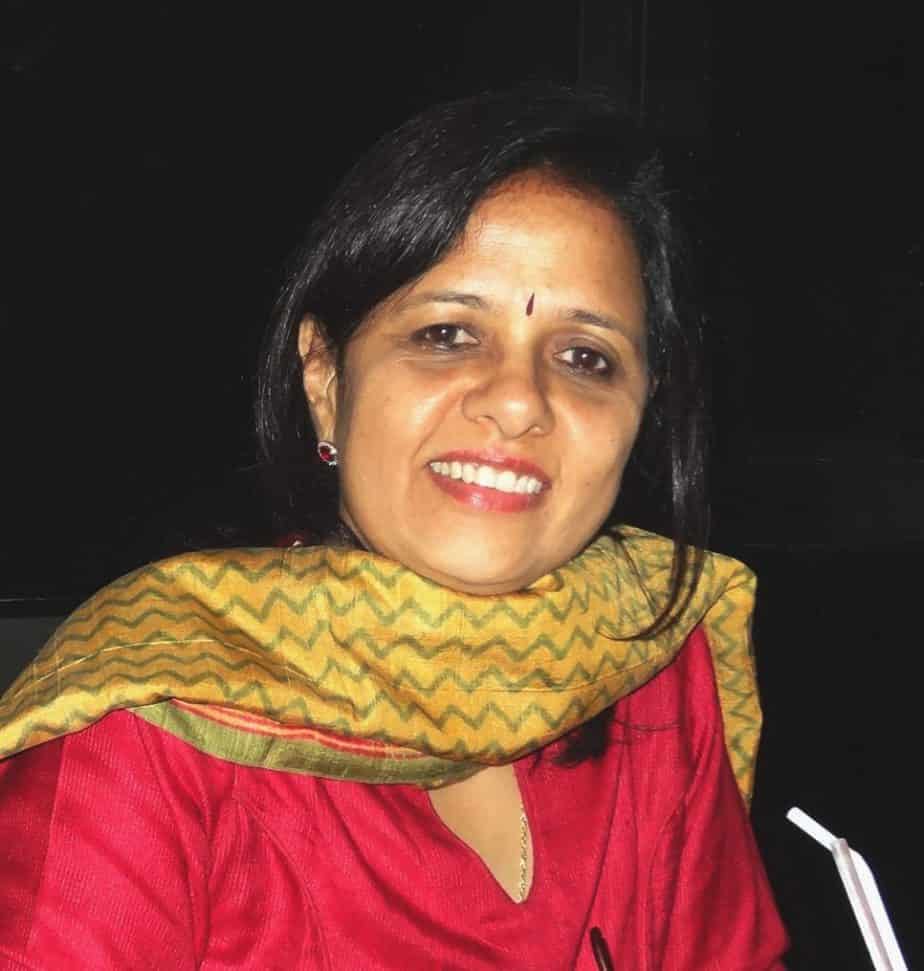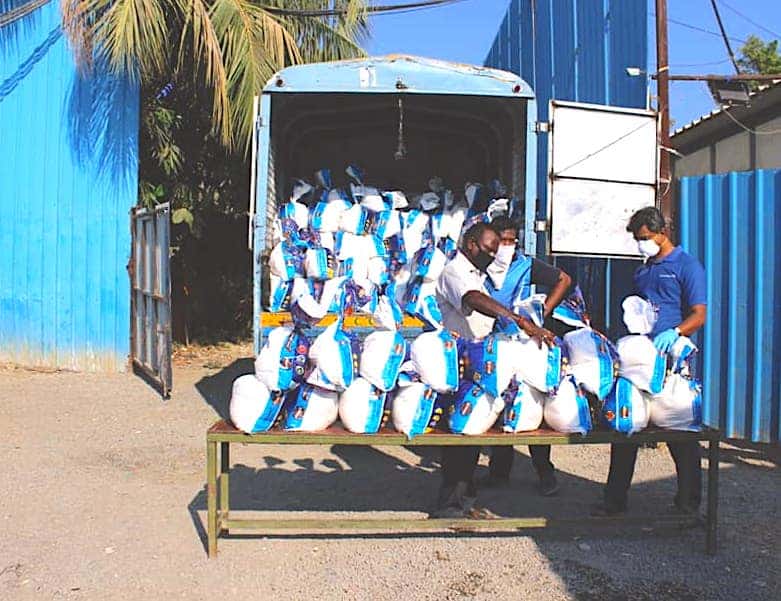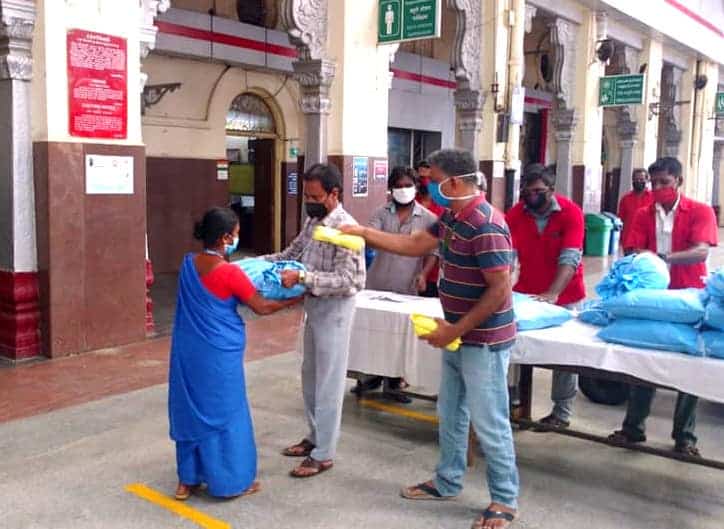As Tamil Nadu went into a total lockdown on March 24th, many individuals in the city found themselves helpless and in dire need of assistance. From migrant workers looking to get back to their hometowns to senior citizens who resided by themselves, the lockdown impacted scores. The situation would have been several times worse had not NGOs, civil society organisations and some individuals taken it upon themselves to come to the aid of those affected.
Thus, when a migrant worker stuck in Chennai with his family and twins, just a few months old, ran out of milk and supplies for the children, it was a volunteer from Bhoomika Trust who came to their aid. He bought the required provisions for the distressed family from a medical store late at night. Today, even after the family left Chennai on a Shramik train and reached their hometown, they are still in touch with the volunteers.
This is just one of the many instances where Team Bhoomika has been able to make a difference with their efforts during the lockdown. Providing supplies to those in need, helping authorities resolve issues bothering migrant workers, lending a hand to other NGOs and running a much-needed senior citizens’ helpline are some of the things that the organisation has accomplished during the lockdown.
Citizen Matters caught up with Aruna Subramaniam, Managing Trustee, Bhoomika Trust. She shares her experience on how Bhoomika’s operation during the pandemic was put together, what other organisations and individuals can learn from the experience and how we can prepare for any crises going forward.

How do you see the role of civil society in the work that you’ve been doing during the pandemic? How challenging was it to mobilise them?
We look at ourselves at Bhoomika Trust as a part of civil society. We may have the potential to respond a little better given that we have an organization at our command, but the initial response of the organization is as intuitive as that of civil society. The difference is that civil society response would most likely be limited to a narrow circle of family and the people around them, whereas as an organization, we start thinking beyond that. Ultimately, as human beings, all of us respond emotionally to crisis.
We’ve also realized that we have been underutilizing civil society. As a society, as Governments or even as organizations, we have not been tapping adequately into their capacity to give. You have to understand that there are people around you who are willing to help you, and you just need to channelize it.
In the case of COVID-19, we were all thrown completely off kilter as this was not a geography-specific crisis or a time-specific crisis. Everybody across the world was going through the same and no one could see or predict the end. So that is something new, and enormously challenging, for all of us.

What was your initial response to COVID-19 and the lockdown?
Whenever there is a disaster or a crisis, our first response as an organisation and team is to start talking, brainstorming. We try to anticipate how the situation could shape up and how people may be affected. And through these conversations, we identify responses or solutions that will definitely have a need under the circumstances. That is exactly how we started the Bhoomika senior citizen helpline in the early days of COVID.
Of course, you have to think of civil society as a critical piece in the entire plan, which is what we have been doing for a few years now. In this case too, we immediately put out a call for volunteers. Defining the kind of volunteer you want is very important. In the current situation we needed two sets of volunteers: remote volunteers to man the phones, do some basic research,coordinate and administer the network of resources and field volunteers to go out to procure, pack and deliver to communities.
Thus, we hit the ground running for the senior citizens’ helpline. We prescribed certain dos and don’ts for field volunteers in particular — we did not involve volunteers over 50 years, or people with comorbidities, or those with young children and senior citizens at home.
Then we started building networks. Here, civil society is of great importance because you can’t be everywhere at once, but calls for help pour in from everywhere. So we used social media to connect with other NGOs and volunteer organizations, and bring people together to work on the cause. They could be residents’ associations, individuals, other NGOs, but we just embraced them during the crisis, and provided them the structure that they would need to respond to the situation.
How did you go about the process of setting up the hotline?
You just need techie friends! [laughs]
Ultimately, people want to help and empathy is at the root of all impact. You should be able to identify the right person to help. We don’t have all these capacities at the organisation level, we actually reach out to the people who can help us with such things and that’s how we get things working fast.
For the logistics, we got companies to help us with the vehicles. It’s about reaching the right people, and you have to come across as a credible organization.
That’s the most critical ability for organizations in times of crisis: Your capacity to think through the needs and then reach the right people and coordinate. That makes it possible to scale the effort; it looks difficult to start with but it grows organically, most of the time.
One thing that we have learned over the years — during the Kerala floods or the Chennai floods or even now — is that our volunteers are really a major asset. If you empower them, and allow them to create processes for you, they do it better than you most of the time.
Do you have any tips or suggestions on how organizations can become resilient to situations such as COVID-19, ones that you can never really foresee?
You have to be prepared for the rainy day. As an organization, we’ve embraced this idea very seriously ever since the Chennai 2015 floods. Our financial planning is done in such a way that we create crisis management funds that can be deployed when there is a disaster, operational funds that allow us to sustain for at least a six-month period.
Even as an individual, this is an important lesson that must be ingrained in us. Every individual should be asked to deposit a certain amount of money into a crisis fund like building a provident fund.
How can the common man channel his resources and help people in this time?
Disasters are a dangerous time. You can’t go out and try to rescue people in floods as you are not equipped to do that. Likewise, in a crisis like COVID-19, you can’t endanger your family, or yourself, stepping out and trying to do something. Therefore, it’s better to take the support of an organization working on the ground to channel the resources. Those who are keen to work on the ground can also enlist with governments, answering their calls to volunteer.
As a community, we need to embrace the society around us. Civil society has to reimagine their idea of coming to someone’s aid. When there are a whole lot of people suffering around you, your life is not going to be normal. To maintain a balance, everybody has to have some level of sustenance and we have to ensure that.
It makes economic sense for those of us who have suffered less or have managed to set aside a rainy day fund to care for those who are in need. We should all ask ourselves if we are taking actions to help someone outside of our community.
What are the kinds of gaps you have noticed in the state response to the healthcare crisis and the humanitarian crisis?
Initially, when the COVID came up it caught everybody unaware, including the Government. Ultimately it is the Government’s reach that is the largest. So it made sense for us to work with the government and keep plugging the cracks they’re highlighting. There is a lot of lacunae in the system. But it helps to work in the middle and act as a bridge.
There were gaps in terms of migrant workers support initially. The crisis that spawned saw the government swing into action only a few weeks down the line. Once they stepped in, it was the authorities who were giving us leads on the migrants who needed support. We collaborated with them in data validation from their portal for the shramik trains.

What are the things that need fixing, immediately, as soon as a semblance of normalcy is restored?
In terms of healthcare, though Tamil Nadu has one of the best ratios of doctors and hospital beds per capita, we found that even that was not sufficient. The public and the civil society has to put pressure on the government to increase health care facilities for the common man. We have also come to see that sanitation is the key and efforts must be made for its improvement.
The other thing is that once the COVID crisis is over we cannot go back to our old ways. Both the civil society and the government has to make us more responsive to public discipline. We need to go back, revisit our education system to make us more responsible citizens. I think that is something that all of us have to recognize now. The issue we have seen post disasters is that we don’t learn from them and that must change now.
Do you think COVID will be able to transform notions and behaviour among people and society?
There are interesting questions, such as, are we going to consume less post-COVID? Are we going to say that these are things that we can live without? Are we going to understand that healthy eating is important and then building your immunity is important?
Right now all of us think it is. But the only way large scale change will happen is that if all enterprises start reimagining themselves. Right now for survival, a lot of industries have started working on facilitating healthier ways of living. If that is something that sustains, consumers will also change.
What has been the most positive takeaway from this whole experience?
In my field of work, contrary to popular opinion, positivity is a constant. You see it with volunteers, donors and beneficiaries. We couldn’t have reached the many individuals and hospitals we reached out to during the pandemic without the support of individual and institutional donors. From donors making contributions big and small to volunteers heading out to deliver even one ration kit 25 kilometers away has been inspirational. Our field volunteers have gone above and beyond.
Our guest workers, even after they have got onto a train and reached home, send us updates on whatsapp. A lot of our volunteers have built bonds with them and with each other. So I think it has been a lot of gratification all around for our volunteers. For us to find these enthusiastic and empathetic volunteers has been the best thing.
This has prompted me to think, why do we wait for a crisis to find these volunteers ? We are constantly living with crises all around us. So if every crisis is an opportunity, what this opportunity is showing us is that we must give young people the chance to be involved and to respond because they possess a lot of empathy.
Do you think there is a particular mantra to make more people come forward to help?
There is untapped potential in terms of collaborations between civil society, NGOs and CSR wings of willing corporate donors. These entities must work together to create models for responding to such crises. Funding is very critical for any response but it is also about engaging with the companies better in terms of identifying deliverables and working alongside them to help them feel invested in the outcomes.
Such collaborations can leverage the companies’ strategic planning capabilities, and their delivery and communication channels
The country sees millions of small acts of goodness. The question is how are you going to impact to scale? Whatever we do has to be sustainable, and it has to be scalable.